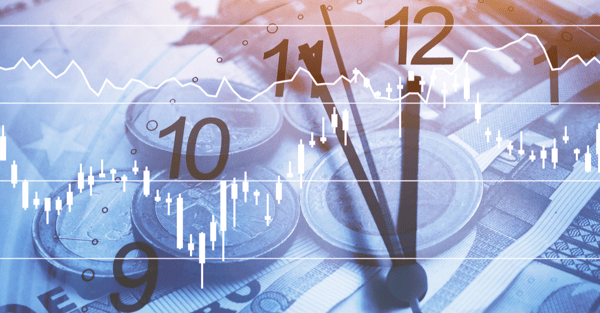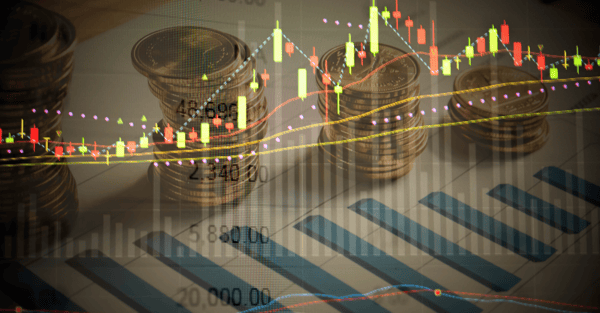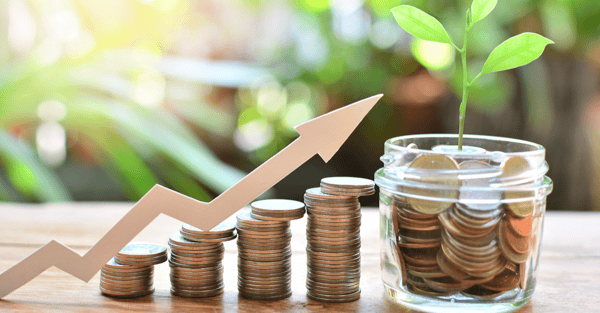Think long term!
Great investors such as Warren Buffett and Shelby M.C. Davis rally behind this wisdom. And there's nothing wrong with waiting before you sell or buy.
There's power in allowing your money to sit in place for a certain period. It doesn't mean the opposite is less powerful, however.
In Forex, both short-term and long-term trading have advantages and disadvantages. How you maximise profit and minimise risk depend on how well you understand the market and yourself.
But let's get the big question out of the way.
Which is better: short-term or long-term Forex trading?
There’s no definitive answer.
Because a long position in Forex has a bigger winning ratio and profitability, but a short position has a bigger compounding effect.
What is definite is that there's a specific trading strategy that suits a particular trader’s risk appetite and personality type. You may prefer short-term trading over long-term trading or vice versa.
Let's find out, shall we?
What is short-term Forex trading?
This is when you buy currencies and hold them for just a few minutes or for fewer than seven days. A lot of brokers market this type of strategy as lucrative and sell it to traders in the most attractive way possible. There's an underlying reason for this, and it doesn't necessarily work in your favour.
Advantages of short-term trading

1. Earning a profit is quick
This is because a trade can be realised in just a matter of hours or days. In one day, you can profit from the positions you open and close.
2. More earning potential
You have many opportunities to capture every swing at times when changes in currency rates are highly volatile. You can even earn in a sideways market.
3. Risk in your capital is minimised
Once you realise you’ve made an incorrect move, you can close a position and then free up your capital for reinvestment on fresh currencies and, hopefully, in a more profitable trade. Your margin capital is also locked in only for a short period.
Moreover, a majority of the technical and fundamental signals in Forex are more suitable for short-term trading. A trading opportunity now can be gone in less than several hours.
Risks of short-term trading
1. High trading costs
The more frequent you trade, the more commissions you have to pay. These can easily add up, resulting in little to no percentage gain. Now you know why brokers market short-term trading more than long-term trading.
2. Significant losses
One reason is due to the volatilities in the markets. Another is the use of margins, which day traders typically use when trading in the short term. Margin calls may mean higher returns, but they also increase the risk and size of a loss.
3. Increased stress levels
This is due to the market's unpredictability. You're also up against professionals who may be more well-informed than you are in a zero-sum game.
4. Demands more time
When the window between buying and selling is short, you have to be constantly glued to your screen, monitoring charts, technical indicators, and other factors that can influence currency movements. Otherwise, you could miss out on a profitable trade.
Who is short-term Forex trading for?
Scalper
This refers to traders who are into fast-paced trading, holding positions for a few minutes to just a few days. The goal is to profit from small pips as frequently as possible and watch them add up. You'll find scalpers most active during the busiest times of the day.
Find out the best times to trade in Forex.
Day Trader
As the name suggests, these traders hold positions within the day. Regardless if they end up with a profit or a loss at the end of the day, they close their trades. No overnight buy and hold for these folks.
What other markets are best for short-term trading?

Aside from Forex, there are other markets suited for short-term trading that you can explore.
Stocks – Shares in the stock market can be traded both long term and short term. However, you can choose to close out trades after a few hours or at the end of each day or trading hours for that intraday gain or loss.
Indices – Short-term trading of indices follows a similar pattern as share/stock trading but involves speculating on different company shares rather than individual stocks. This exposes you to a much larger market, but also more factors that can affect your position.
Cryptocurrencies – With the market open 24/7, combined with the volatility of cryptocurrencies, there are plenty of opportunities for short-term traders to earn a profit.
Commodities – Trading commodities such as gold, silver or oil provides you with the option to take a shorter-term view of the assets traded. Since you get to decide on a specific timeframe, you can always choose to go short.
Three short-term Forex trading strategies that will set you up for success
1. Support and Resistance
This is where you trade based on a breakout from important levels on the chart. You must first determine the support and resistance levels on a higher time frame and then switch to lower time frames. Go short if the price action breaks a support level downwards.
Your question on Should You Use Support Or Resistance in Forex Trading answered.
2. Trend Trading
This strategy recommends that you wait for a currency pair to bounce for the third time from the same trend line before you open a trade. When the price action breaks the trend, close a trade. From there, you can then look for another opportunity to open a trade. Make sure to set a stop-loss order to minimise your risk exposure.
3. Candlestick Patterns
This involves scalping based on candle patterns such as Triangle, Inside Bar, Pennant, and Flag. You enter the market based on a direction indicated by a candlestick pattern. Similar to trend trading, a stop-loss order is a must.
What is long-term Forex trading?
This involves waiting for weeks or months to gain profit. Think of this as trading currencies with a bigger picture in mind. You're not in it for pennies but bigger gains. Because after a long wait, your long-term position could earn you more profit than the sum of hundreds of smaller positions.
Advantages of long-term Forex trading

1. Saves you time
You buy a pair at one time and then hold it for a long time. You're basically in and out of the market in minutes or hours. You don't need to look for new opportunities daily either.
2. Less stressful
This is because you don't need to constantly monitor the market or charts. In between buying and selling, you can conduct thorough research before your next trading decision.
3. More profitable opportunities
Since you don't need to cash out quickly, you can stick with the winners and extract as much of them as possible. And since you don't need to sit at your computer every day, you can keep a full-time job and trade at the same time.
4. Better cost-to-profit ratio
You pay lower commissions since you don't open multiple trades, the cost of which could become negligent in the long run. Other costs such as swap and rollover, on the other hand, tend to be minimal and, in some cases, are in the positive.
5. Easy trade adjustment
Whenever new economic data comes out, you can adjust your trades to react favourably to it.
Risks of long-term Forex trading
1. Not for the impatient
It could take weeks or months to liquidate a position.
2. Requires knowledge of fundamental analysis.
This might be a disadvantage if you're just starting out
3. Requires research
You can't make trading decisions based on economic news alone. You have to consider global commodity prices, interest rates, long term trends of various currency pairs, and other factors that will affect your position.
Discover the meaning of negative interest rates in Forex.
Then, there’s the nagging feeling that you could be missing out by holding out too long. If you can’t tamp this down, your stress levels will likely increase.
Who is long-term Forex trading for?
Swing trader
This kind of trader holds a position for several days or weeks, in the hope that a trend or pattern will change direction. They then profit from the price swings. Using technical analysis tools, a swing trader identifies a possible trend to hold for a certain period of time.
Position trader
Nothing beats a position trader in the waiting game. They can wait for days or even years to close a position. Because the goal is to profit from long-term opportunities, they use fundamental and technical analysis to identify profitable trades.
What other markets are best for long-term trading?

Growth Stocks – Stocks, mostly from tech companies, that promise high growth and high ROI.
Stock Funds – An ETF or mutual fund lets you invest in the long term and profit from a broadly diversified fund.
Bond Funds – This is similar to stock funds but contains numerous bonds from a range of issuers. These are considered relatively stable and safe.
Dividend Stocks – Receive regular cash payout from stocks of more mature companies or those that have a lesser need for cash.
Real Estate – The longer you hold an asset, the higher the ROI. You can also use it as collateral and borrow money for most of the investment.
Three long-term Forex trading strategies that will set you up for success
1. Trend trading
This involves looking for a new high or low that breaks from an old resistance by at least three pips and then opening a trade from there. Trading on trends requires you to learn how to spot (not predict) trends to profit from Forex.
2. Swing trading
This is where you enter a long-term trade based on three indicators–moving average, relative strength index (RSI), and visual analysis.
3. Breakout confirmation
This involves placing a few momentum indicators–RSI and the stochastic movement–to help you analyse if a trend is likely to materialise.
How long are you willing to wait to profit from the Forex market?
Your answer will tell you which trading strategy you're likely to employ, whether short term or long term. This may take some trial and error to clearly define the kind of trader you are, but knowing what each strategy entails will provide you with a sound starting point.
Ready to grow your wealth in the world's largest financial market? No better place to start than right here with us! Start your journey to effortless income-building with Fullerton Markets today by opening an account:
